Ylang Ylang /Cananga Odorata/ is a tree that grows in tropical areas of Indonesia, the Philippines and Asia. The tree reaches a height of 20 meters. There are fragrant and delicate, pink, yellow or purple flowers. Since ancient, the aroma of ylang-ylang is widely regarded as the aroma of sensuality and love. The oil from ylang-ylang is produced in Comoros and Madagascar.
In Indonesia, couples are decorated with garlands of the fragrant plant to this day. With the aromatic smoke of ylang-ylang is smoked housing against discord and strife. Women in Polynesia use ylang ylang as perfume. Moluccas use cream with oil from ylang-ylang for the prevention of infectious diseases and various skin infections.
Composition of ylang-ylang
The main chemical components of the oil of ylang-ylang are linalool, benzyl acetate, benzyl benzoate, methyl ether, geraniol, nerol, terpineol, ilangol, eugenol and various other sesquiterpenes.
The oil from ylang-ylang is derived through several stages of compression. Oil obtained from the first pressing is considered "extra" and the next 3 pressed are called first, second and third-pressed oil of ylang-ylang.
Extra oil has the highest ester content and a very sweet smell. Oils obtained from the following three pressings are not as sweet. Extra oil is used in aromatherapy, but not only in perfumery.
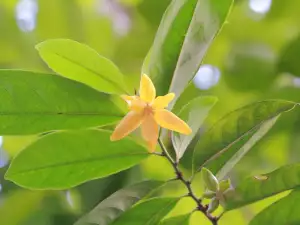
Selection and storage of ylang-ylang
Ylang-ylang can be detected in the form of essential oil as well as a variety of cosmetics. Keep essential oils tightly closed, at a place which lacks direct sunlight. Keep away from children.
Benefits of ylang-ylang
Oil of ylang-ylang refers to a group of essential oils - aphrodisiacs. The aroma is spicy, sweet, with slight hints of gardenia and jasmine. Ylang Ylang has a positive effect on the nervous system, eliminating feelings of anger and fear, tension and anxiety. Effective in depression, anxiety, insomnia, tiredness, premenstrual syndrome.
The oil from ylang-ylang is a valuable healing factor in cardiovascular disease because I lowers blood pressure, calms palpitations and shortness of breath. Regular use of oil of ylang-ylang increases blood flow to the heart muscle and reduces the manifestations of angina. Strengthens the immune system and relieves spasms. Ylang Ylang is a great tool in spastic bowel disorders.
As an aphrodisiac, oil from ylang-ylang has very good erotically stimulating action - increases sexual desire, creates a mild euphoria and increases sensuality. This is one of the most erotic and romantic oils. Helps with frigidity and impotence.
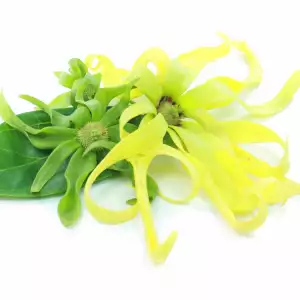
The oil from ylang-ylang has a universal effect on the skin - favorably affects both dry and oily at the skin. Helps irritable and damaged skin. The oil is useful for insect bites, disinfects and refreshes, stimulates blood circulation in the capillaries and nourishes skin cells. It is extremely useful when caring for your hair, especially for weakened and damaged hair. Ylang Ylang is a great tool for intimate cosmetics.
Application of ylang-ylang
Ylang-ylang is frequently used in aromatherapy. To purify the air in your home, drip 2 drops of ylang-ylang, bergamot, rose and lemon juice in aroma lamp. Leave the fragrance to gradually spread in the premises and just breathe.
With a pendant containing this aroma, you can feel wonderfully amazing. On the market there are different pendants which can store oil for several hours to several months.
The oil from ylang-ylang is used for massages. For this purpose, in a suitable container, mix 25 ml of almond oil, 2 drops of geranium, 5 drops lavender, 4 drops of sandalwood and 2 drops of ylang-ylang. In addition to massage, the resulting oil is suitable for night cream for every skin type, but not ultra-sensitive.
For problems with nails, a massage with essential oil ylang-ylang is extremely useful. The oil can be used for spa treatments. To enjoy true relaxation, prepare a bath with ylang-ylang and garden tea. For this purpose, drip two drops of each oil in the water.
Ylang-ylang is very widely used in perfumery. Blends perfectly with fruity, woody, fruity and floral notes. If you suffer from bad breath and gingivitis, spray brush your teeth with 2 drops of ylang-ylang.
The oil from ylang-ylang is not to be used by people who suffer from individual intolerance to it. Be careful because the essential oil is highly concentrated.
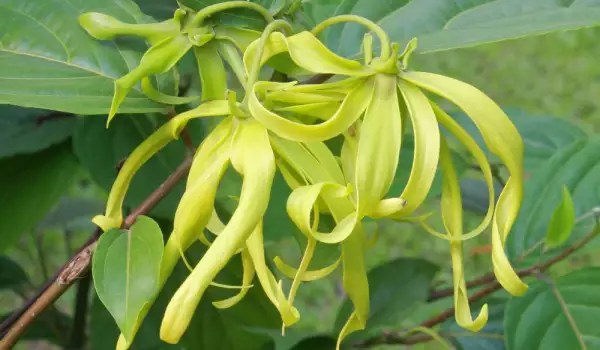
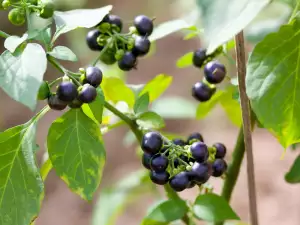
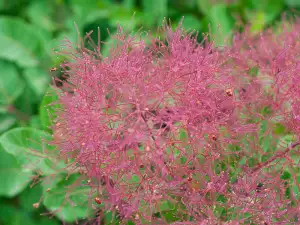


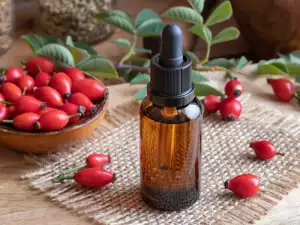


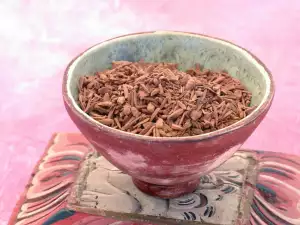
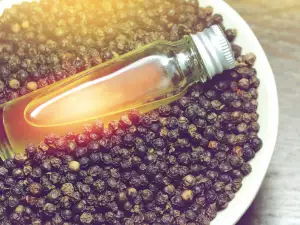
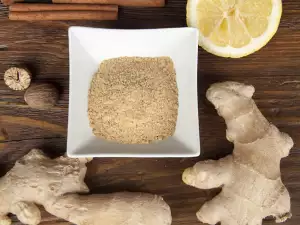
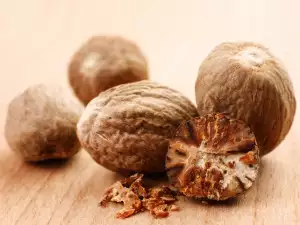
Comments